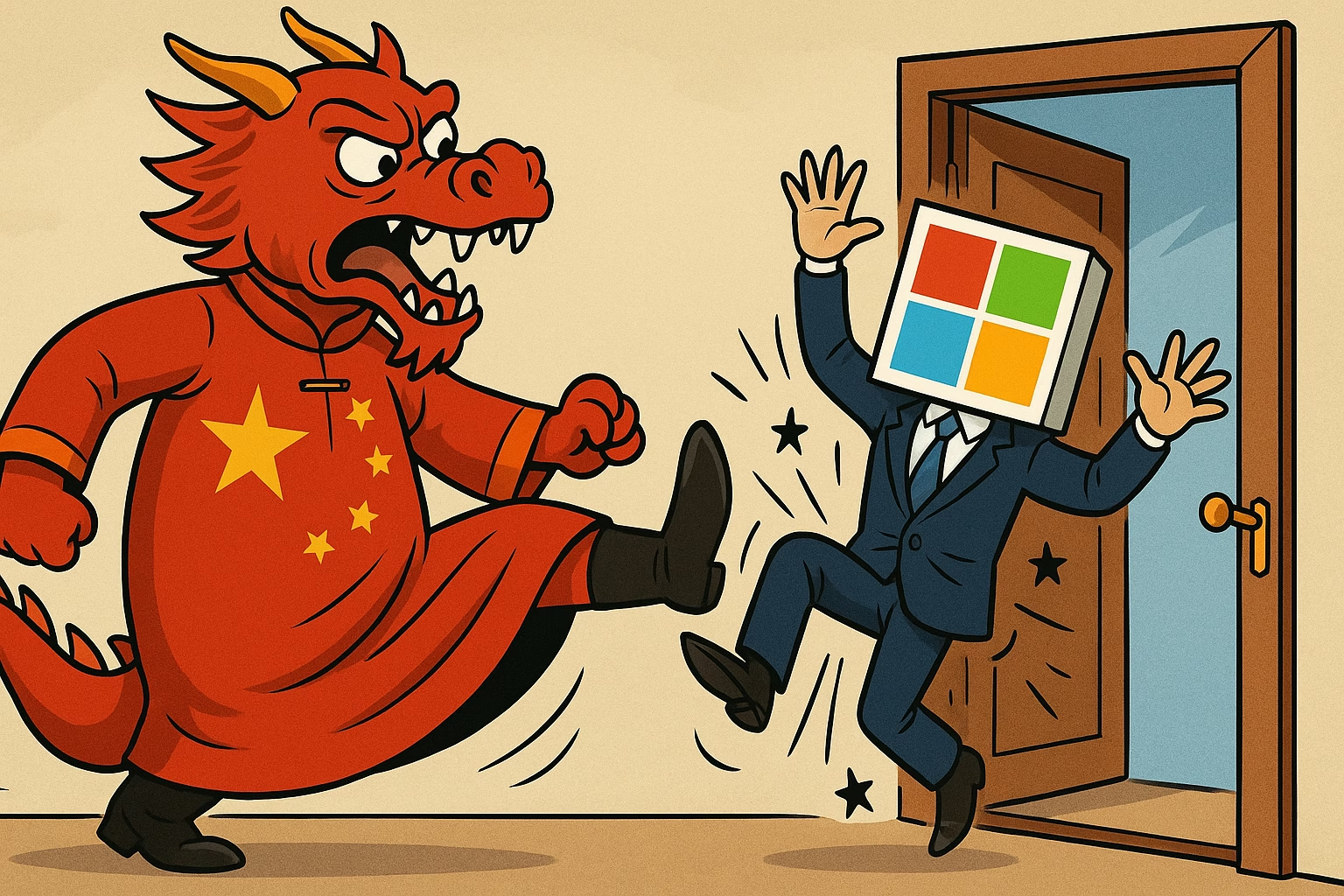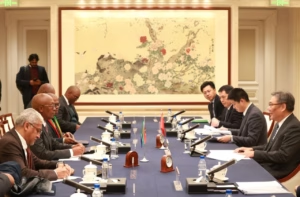In a modern twist to a centuries-old tale of power and control, China has quietly fortified its digital borders. Much like the Europeans who once read out edicts to unknowing indigenous communities upon reaching the Americas, Beijing now seems intent on defining its own rules of engagement. This time, though, it is not about conquest through territory but through technology and control of information.
China Blocks Access To Its Official Documents
Last week, China’s Ministry of Commerce released new documents concerning rare earth export controls. What startled observers was not their content but their format. The files could not be opened using Microsoft Word or any other American word processor. According to a report by South China Morning Post, the ministry used a new file type that functions exclusively with WPS Office, China’s domestically developed equivalent to Microsoft Office.
WPS Office, created by Beijing-based technology company Kingsoft, operates using a unique coding structure. Its files are incompatible with Microsoft Word unless converted, a detail that highlights China’s deepening commitment to cutting off dependence on Western software ecosystems.
A Symbol Of The Growing Tech Cold War
The timing of this shift is far from coincidental. It comes as relations between Beijing and Washington grow increasingly adversarial, with both sides treating technology, semiconductors, and information systems as strategic assets. Analysts describe it as a “new kind of cold war,” fought not with missiles but with code.
Behind this technical change lies a deliberate political and economic strategy. Over the past few years, China has intensified its campaign for what President Xi Jinping calls “technological self-reliance.” The aim is to ensure that no foreign nation, particularly the United States, can paralyse its systems through software dependencies or digital sanctions.
Building A Fortress Of Self-Reliance
This move toward digital sovereignty gathered pace after a global disruption in July 2024. A faulty update by Texas-based cybersecurity company CrowdStrike temporarily crippled Microsoft’s Windows systems worldwide. China, however, remained largely unaffected. Many of its core industries, including banks, airlines, and public services, had already transitioned away from foreign operating systems.
In 2022, China’s State-owned Assets Supervision and Administration Commission reportedly directed all state enterprises to fully adopt domestic software for office and operational use by 2027. Since then, WPS Office has emerged as the leading word processor in the country. Meanwhile, homegrown technology giants such as Tencent, Huawei, Alibaba, and NetEase are expanding into enterprise email, cloud computing, and AI platforms to replace American alternatives, according to South China Morning Post.
The Slow Retreat Of Western Software
The exodus of American software from China has been slow but steady. Tech firms once embedded in the Chinese market are either downsizing or leaving altogether. Adobe and Citrix—now operating as Cloud Software Group—have both reduced their presence. Microsoft, once a symbol of American technological dominance, shut down its AI research laboratory in Shanghai and closed all physical stores across mainland China by 2024.
Meanwhile, Beijing has become increasingly assertive in its oversight of foreign technology entering the country. In September 2025, Chinese regulators reportedly instructed major companies such as ByteDance and Alibaba to cancel testing and purchases of Nvidia’s RTX Pro 6000D chips.
Earlier, the Cyberspace Administration of China had issued warnings to major firms including Tencent, Baidu, and ByteDance against using Nvidia’s H20 artificial intelligence chips, citing “national security and data risks.”
The Broader Message From Beijing
China’s decision to use a native document format may appear minor on the surface, but within it lies a broader message: the era of technological interdependence between the world’s two largest economies is waning. Beijing’s digital self-reliance policy is not merely about protecting data but about asserting sovereignty in the digital realm.
By closing its digital gates, China signals that control of its technological ecosystem is a matter of national power. The move underscores an ideological shift in global technology, where trust is no longer a given, and each byte of data is seen as an instrument of statecraft.

















